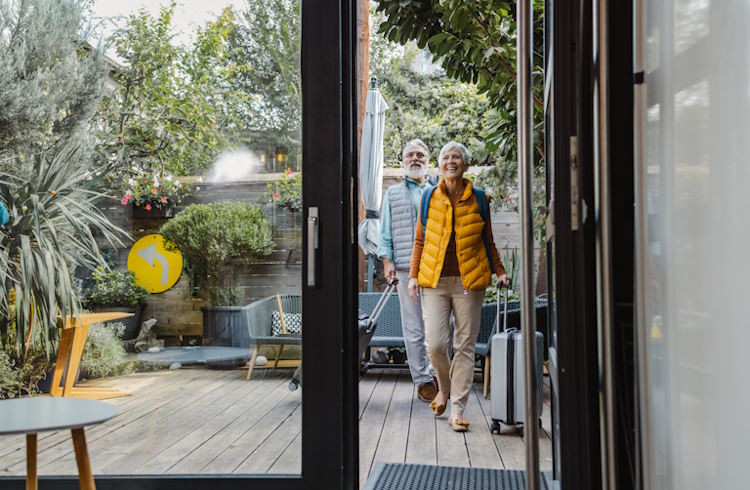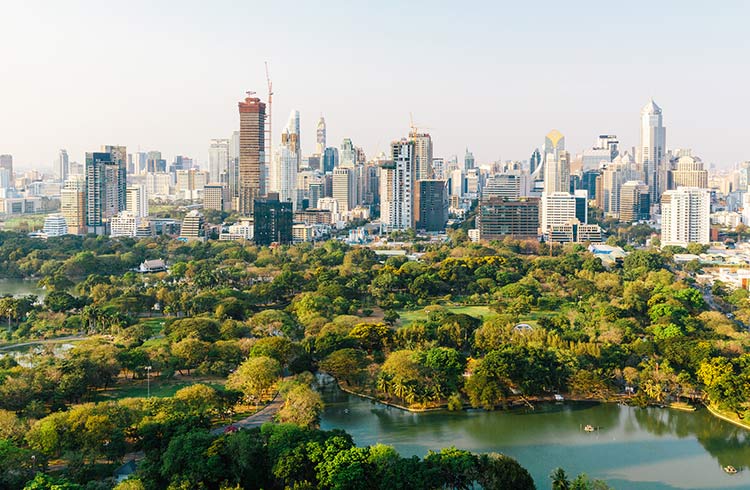Is Airbnb Still an Ethical Option for Travelers?
Short-stay accommodation platforms like Airbnb were hailed as a way for travelers to enjoy a more authentic, local experience. Then came the backlash. Can these rentals still be part of an ethical travel experience?
 Photo © Getty Images / Milko
Photo © Getty Images / Milko
The surge in short-term residential platforms has transformed the travel industry in recent decades. So why is the sector being blamed for everything from the housing crisis to overtourism worldwide?
- The rise and rise of Airbnb
- The issue with short-stay vacation rentals
- Are restrictions on STRAs justified?
- Balancing the tourism economy and affordable housing
- How travelers can help change the industry for the better
- Why choose a short-stay vacation rental?
- Getting back to the original idea behind Airbnb
The rise and rise of Airbnb
Back in the day – 2008 to be exact – many travelers discovered a new way to find a roof over their head in far-flung areas around the globe.
This was the year Airbnb came into play and, while it wasn’t the first short-stay accommodation platform, it revolutionized travel for many. Choices opened up for travelers, beyond hotels and motels. And better still, they could vet their options with online reviews from previous users.
These platforms also provided a way for locals to rent out their homes and make some extra cash from travelers.
Now Airbnb is one of the world’s most-visited travel websites and competitors, like VRBO and Booking.com, are also big players in the hosted and non-hosted short-stay residential accommodation (STRA) sector.
The issue with short-stay vacation rentals
In many tourist hotspots, local governments are now trying to curb the growth of STRAs, particularly non-hosted stays (where the host does not live on site permanently), to address chronic housing shortages and rising rents for locals.
In 2023, one of Italy’s most popular cities and a World Heritage UNESCO site, Florence, banned any new Airbnbs in the historic center of the city, due to overtourism.
In Australia, state governments are imposing restrictions on the sector in an attempt to confront a housing shortage and surging rents. The state of Victoria imposed a levy on short-term rental property owners and restrictions are already in place in New South Wales, where non-hosted STRAs are limited to 180 days. And in some of the most popular tourist areas, there have been calls to restrict this further, to only 60 days.
In New York City, there have long been restrictions on these kind of short-stay rentals but it wasn’t until 2023 that NYC’s Law 18 meant more serious enforcement of the rules.
Some say these rules are already working to open up rentals; others say they’re unfair to locals trying to make some extra cash, while giving hotels an unfair advantage.
Are restrictions on STRAs justified?
That depends who you speak to. Academics, governments, media – and Airbnb – have all been crunching the numbers to determine just how much STRAs affect long-term housing supply, and how much restrictions will hurt the tourism industry.
In a statement from Airbnb Australia entitled Housing Crisis Demands Action not Scapegoats, the company claims restrictions have made it more expensive for visitors to New York and cautions against Australia going down the same route.
“Visitors have fewer accommodation options and face higher hotel prices – both of these trends are discouraging potential visitors from travelling to the Big Apple. As has been proven time and time again, more competition, not less, is vital to keeping prices down.”
Airbnb claims that other factors play a bigger part in exacerbating the housing crisis in Australia, including new housing supply not keeping up with demand, record-low interest rates, tax breaks for investors, and population growth.
It also cites the issue of second homes laying empty all year round and not available for rent at all. This is a legitimate argument – in the Australian state of New South Wales, according to the 2021 census, there are approximately 10 times as many vacant houses as there are short-term rentals. But these are more difficult for governments to regulate.
Balancing the tourism economy and affordable housing
So, while housing advocates call for regulations, governments in areas reliant on the tourist dollar face the task of ensuring sufficient visitor accommodation, while retaining affordable housing for locals and the very people who keep that economy going.
Jen Clark is a former accommodation manager and founder of Australian-based Hosting with Heart, which she created to address issues within the STRA sector and make it more ethical.
It’s billed as “the world’s first online property directory managed by hosts who give a s**t about people and the planet as much as they do profit.”
Jen believes there is a long way to go to find a healthy balance between quality, responsibly operated accommodation and longer-term rental housing stock and that not regulating STRAs in Australia has resulted in an oversupply of short-term accommodation.
“This benefits no one, as every STR operator – be them ethically-minded or not – suffers lower occupancy rates as a result.”
Jen believes the recent study commissioned by Airbnb (cited above) made the figures look rosier “in order to suit their commercial agenda.”
Consistent regulation and incentives for multi-property owners to list secondary properties long-term would make a difference, according to Jen.
With this in mind her new STRA marketplace, ‘Heartful’, encourages hosts to move their properties to the long-term rental market if they’re sitting vacant for a significant part of the year.

How travelers can help change the industry for the better
Heartful also connects travelers with responsible hosts by only featuring properties that focus on sustainability and inclusive hosting practices. Jen believes travelers can influence the market by looking closely at the ethos of accommodation providers and asking more questions:
“Does a particular property showcase products and services from its local community? Do they operate with sustainability? Do they practice inclusion and aim to ensure an enjoyable, comfortable stay for guests with diverse access needs?”
These sound practices by hosts, rather than being a burden, give them a competitive business edge, Jen says.
“A growing number of travelers are seeking holiday experiences that align with their own values and cater to their needs… We want them to feel empowered by the impact their travel choices have on people, communities, and the planet.”
Why choose a short-stay rental?
Tracy Bickley is a writer and artist who travels around the world. Mostly, she opts for short-stay residential accommodation for affordability and an immersive cultural experience, compared to a hotel.
She seeks either hosted or non-hosted STRAs, and credits them with “opening up the world” to someone like her – a single parent with an unreliable income living in central London during a cost-of-living crisis.
On a recent trip to Japan, she stayed in a large hotel first, but found it impersonal and anonymous, so she booked into a traditional Ryokan via an online booking platform.
“I learned about Japanese culture and kindness,” she says. “In Spain and France, I’ve stayed in homes where I’ve gained insight just looking at the bookshelves or the spices in the kitchen cupboards. You’re living the culture.”
She finds residential stays usually more environmentally sound than large hotels, too:
“I don’t need my room cleaned every day, or new sheets and towels that use so much water. I don’t need free toiletries, slippers, or plastic toothbrushes and cutlery… huge hotels are often more detrimental to climate change than someone opening up their home for a week.”
Getting back to the original idea behind Airbnb
Tracy also points to the economic benefit for those renting out their homes, with friends and neighbors in London often doing it to pay bills and survive.
“If you're really wealthy, there's no need for anyone to ever come into your home and you can lock the doors and go away.”
This fits with the original ethos of Airbnb. Its disruptor model was founded when its creators struggled with the rent on their San Francisco apartment – they had the bright idea of raising cash by letting out air mattresses on their living room floor.
Perhaps like many things – including some of the world’s best tourist destinations – STRAs can become a victim of their own success.
Short stays don’t need to be off the agenda though – they can still offer some wonderful accommodation options. As responsible travelers, we can do the research and choose wisely.
Related articles
Simple and flexible travel insurance
You can buy at home or while traveling, and claim online from anywhere in the world. With 150+ adventure activities covered and 24/7 emergency assistance.
Get a quote


No Comments